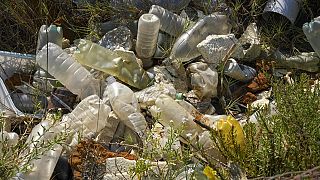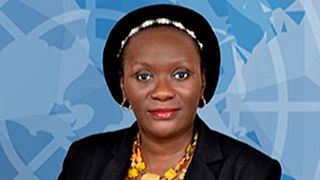Uganda
The fight against HIV in Uganda seems to be moving in the right direction.
Nationally infections have dropped to 5 per cent, down from 30 per cent three decades ago, attributed mainly to better education and prevention methods like increased HIV testing and treatment.
But among sex workers, the rate remains worryingly high, with just over one in three women in the profession believed to have HIV.
In Kampala’s slums, where many of them live and work, one woman is doing all she can to improve the situation.
Deborah Nakatudde is a former sex worker who understands the trade, having been drawn into it at just 15 years old.
Her parents died when she was young, leaving her under the care of a stepmother who mistreated her.
Nakatudde says she was forced to drop out of school, leaving her no choice but to earn a living in sex trade.
She lived in Bwaise, one of the biggest slums in Kampala, and where sex trade is common.
In 2008, a sexual and reproductive health organisation chose her as a peer educator for women in the slum. But after the project closed, Nakatudde felt there was an urgent need to continue the work.
She started her own organisation, Saving Lives Under Marginalisation (SLUM), which spearheads campaigns against sexually transmitted diseases among sex workers in Kampala’s slums.
“I felt, as a community of sex workers, we needed to have something that we own where we can express ourselves in a manner that no one will judge you, no one will question why you had unprotected sex, so I wanted to create a safe place for the sex workers,” she said.
Nakatudde works with public health facilities in Kampala to have HIV testing and treatment for sex workers.
Her foundation also holds outreaches in slums to educate sex workers on prevention methods, like condom use or pre-exposure prophylaxis (PrEP) medication.
She says she reaches over 350 sex workers every year with her prevention messages.
Sex worker, Amina (not her real name), says she was shocked to find out she is HIV positive and pregnant. Through the SLUM project, she was tested and was started on HIV treatment.
Amina is also receiving antenatal care to ensure she delivers a healthy baby.
“I decided to become a sex worker after my husband started mistreating me. Sometimes he would lock me out of the house at night. I had no food, so I had to survive,” she said.
Mother to child transmission of HIV is preventable if antiretroviral treatment is administered during pregnancy.
Uganda has seen a 77 per cent drop in that transmission between 2010 and 2020. The country has set an ambitious target of achieving zero HIV mother-to-child transmission by 2030.
Innocent Kaitta, a health worker with Nakatudde’s SLUM project, says the risk of contracting sexually transmitted diseases is high among sex workers because they have no control over protecting themselves.
“Because of their sexual behaviour, having sex without a condom pays highly. So, for somebody who has probably not had lunch, or somebody who has a child who needs to go to school, they will definitely say it’s ok to have unprotected sex, and this puts the person at risk.”
The government wants to provide HIV treatment to at least 95 per cent of all people found to have the disease.
Nakatudde says this will be her main focus going forward, so that infection rates among sex workers can start to drop like they have in the wider population.












Go to video
Oligui Nguema: A breakthrough or continuity for Gabon? [Business Africa]
01:46
Ethiopia: HIV infections soar in post-war Tigray
Go to video
UNAIDS urges action to prevent HIV crisis globally
02:42
Global healthcare at a crossroads: African scientists seek local solutions
05:00
Breaking stigma, building hope: Gloria Nawanyaga’s fight for inclusion and empowerment
04:40
Young child becomes second person to die of Ebola in Uganda